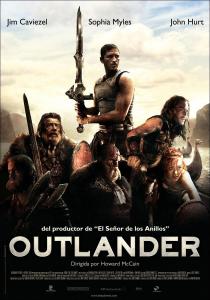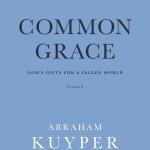
Despite being one of the great classics of literature with a fairly straight-forward plot, few characters, and simple themes, Beowulf has been notoriously difficult to capture for the big screen with any degree of quality. The CGI version was an atrocity, Beowulf and Grendel fell super flat, I’m not sure what was going on in the TV series, and the sooner we forget the Christopher Lambert monstrosity the happier we’ll all be. The best version so far is a loose adaptation of Michael Crichton’s novel Eaters of the Dead called The 13th Warrior (and for what it’s worth, it was a great movie–just not a great adaptation of Beowulf…).
Enter 2008’s Outlander. If we ignore the sci-fi aspects of the film, which add nothing whatsoever to the movie and are really just a distraction from what is otherwise a solid horror movie and decent adaptation of Beowulf. In Outlander, Kainan drops from the stars into a Viking settlement under attack by the Morwen, a creature fast, silent, and powerful. Kainan tells the settlement that his family had been killed by the Morwen, only later [spoiler alert!] to reveal that he himself had attempted to exterminate the Morwen tribe and that his family had been killed by the one he missed. Working with the Vikings, Kainan hunts and kills the Morwen (both the parent and the child) and decides not to return to the stars and instead stays with the Vikings.
Again, the sci-fi component really doesn’t add much to the plot. Kainan could just as easily have been from another culture or community (as Beowulf was in the original text) and everything in the film would have been basically the same. Even the anti-colonial themes would have been functionally unchanged.
From a Christian perspective, Outlander is an especially interesting take on Beowulf in that it does basically the same thing with the faith: it is an obviously tacked-on component that doesn’t really add much to the story but is also undeniably present. In the original poem (and see Tolkien for more on that), the Christianity is clearly a later addition to an early narrative, and doesn’t do much in terms of advancing the narrative. In Outlander, the Christian priest is there, speaks occasionally, and dies quickly and violently without contributing anything to the narrative. I suppose there’s something to be said about Christians not inserting ourselves into the stories the world tells. But I think the broader themes are strong enough to stand on their own. Even we Christians need to think about the role of violence in our lives and the importance of contentment with what we have as opposed to taking from others at their expense (and yes, some of the themes in this film are low-hanging fruit). Outlander does a decent version of this while telling a good story and acting as a decent adaptation of a classic poem. And that should be enough for any movie.
Dr. Coyle Neal is co-host of the City of Man Podcast an Amazon Associate (which is linked in this blog), and an Associate Professor of Political Science at Southwest Baptist University in Bolivar, MO









